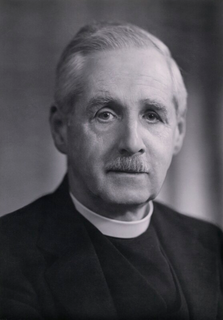A Quote by Alain de Botton
Our jobs make relentless calls on a narrow band of our faculties, reducing our chances of achieving rounded personalities and leaving us to suspect (often in the gathering darkness of a Sunday evening) that much of who we are, or could be, has gone unexplored.
Related Quotes
Each of us will have our own Fridays—those days when the universe itself seems shattered and the shards of our world lie littered about us in pieces. We all will experience those broken times when it seems we can never be put together again. We will all have our Fridays. But I testify to you in the name of the One who conquered death—Sunday will come. In the darkness of our sorrow, Sunday will come. No matter our desperation, no matter our grief, Sunday will come. In this life or the next, Sunday will come.
O Holy Spirit of God, abide with us; inspire all our thoughts; pervade our imaginations; suggest all our decisions; order all our doings. Be with us in our silence and in our speech, in our haste and in our leisure, in company and in solitude, in the freshness of the morning and in the weariness of the evening; and give us grace at all times humbly to rejoice in Thy mysterious companionship.
I suspect that many of us, if given the chance to make one person in our lives love us more, would have no trouble in choosing where to point a finger. We are all needy, all vulnerable, all terrified that perhaps that person has an excellent reason to withhold affection. We shape our purposes to make ourselves worthy and often do not see until much later how it was love-or perhaps the lack of it-that both picked us up and dropped us off at crossroads.
You can make more money on unemployment than you can going down and getting one of those jobs that is an honest job, but it doesn't pay as much. And so, that's what's happened to us is that we have put in so much entitlement into our government, that we really have spoiled our citizenry and said you don't want the jobs that are available.
Schwartz's research suggests something important: we can stretch our personalities, but only up to a point. Our inborn temperaments influence us, regardless of the lives we lead. A sizeable part of who we are is ordained by our genes, by our brains, by our nervous systems. And yet the elasticity that Schwartz found in some of the high-reactive teens also suggests the converse: we have free will and can use it to shape our personalities.
From whence it is obvious to conclude that, since our Faculties are not fitted to penetrate into the internal Fabrick and real Essences of Bodies; but yet plainly discover to us the Being of a GOD, and the Knowledge of our selves, enough to lead us into a full and clear discovery of our Duty, and great Concernment, it will become us, as rational Creatures, to imploy those Faculties we have about what they are most adapted to, and follow the direction of Nature, where it seems to point us out the way.
Autumn is the Sabbath of the year; the time to think of all the past: nature's calm twilight before the darkness. It does make all men think at times; even the lightest and the worst. The distant days of our springtime, our faded summer, comes over us like a dream. We sit in the evening of our life in tender musings, and all that has been takes shadowy form again, and passes through the thoughts.






































